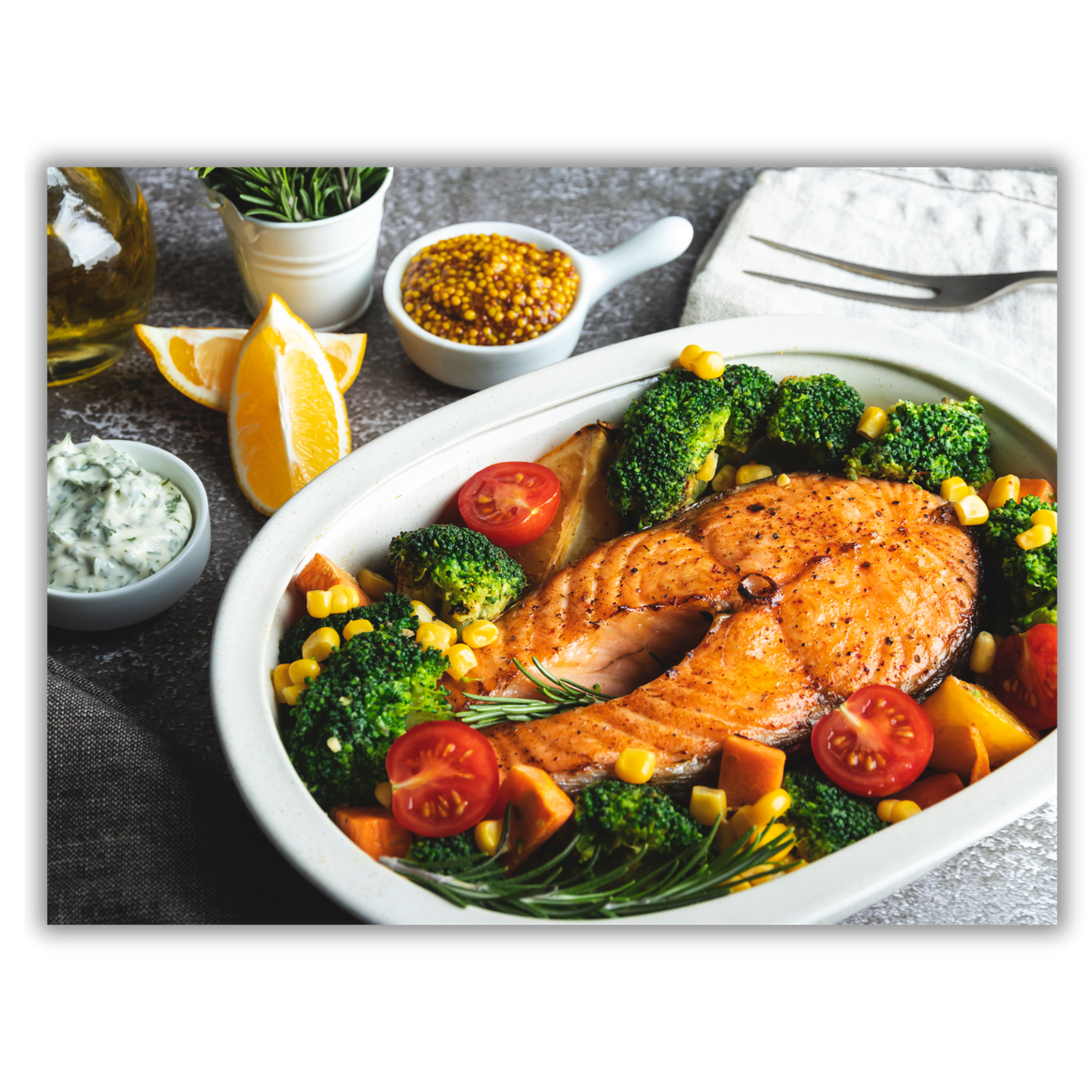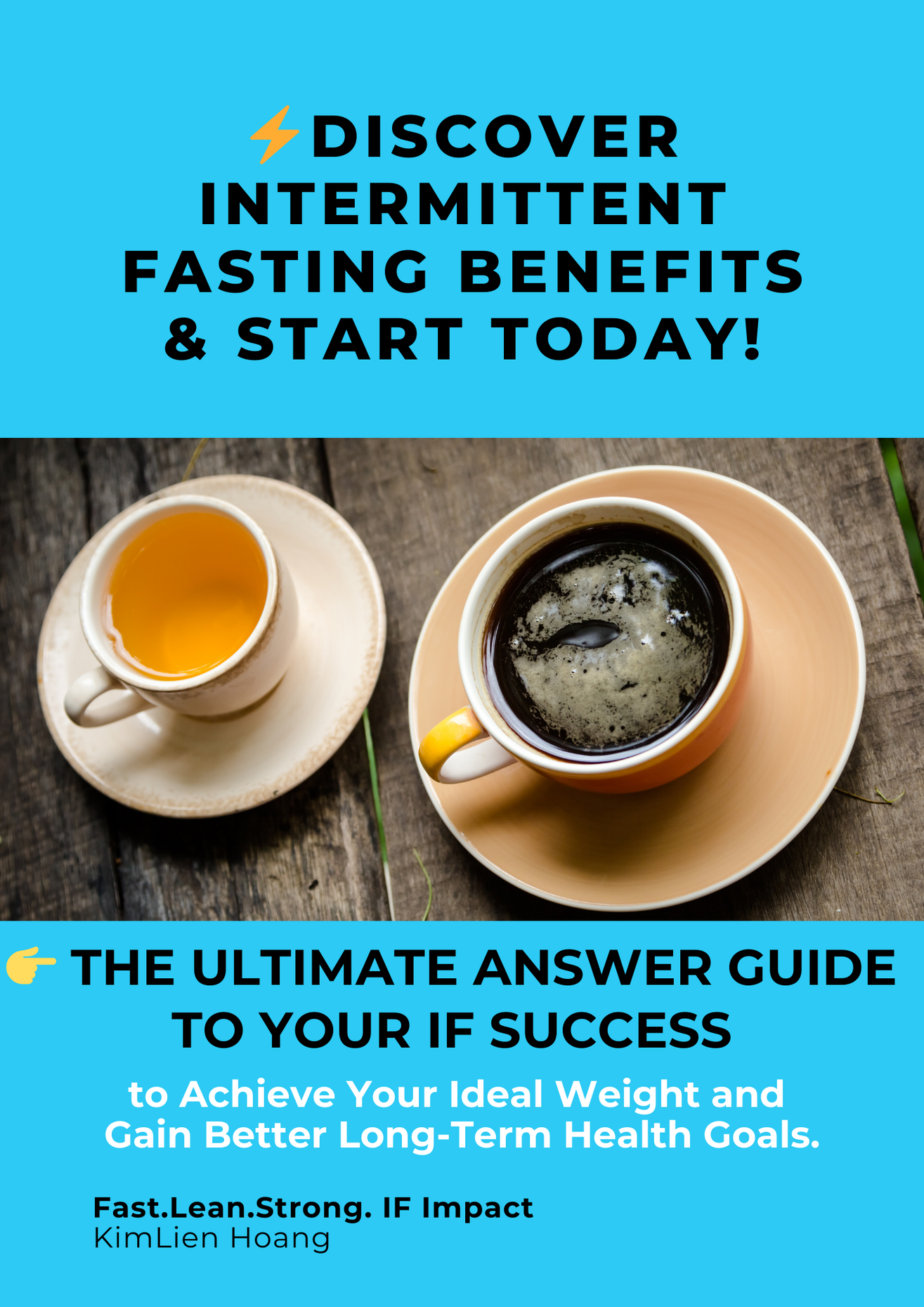
What is Intermittent Fasting (IF)?
Intermittent Fasting (IF) involves cycling between periods of fasting (zero calorie, zero sugar, zero carb intakes) and eating, usually on a daily or weekly basis. This approach combines when and what you eat to maximize the effectiveness of fasting. The potential benefits of IF include improved blood sugar control, weight loss, increased metabolic rate, improved heart health, and reduced risk of chronic diseases when combined with daily exercise and whole, fresh foods with lean protein. When done correctly, IF is a sustainable way to control hunger, lower overall calorie intake, and build a better relationship with food.
Achieve Your IF Success With…

Picking Your Right Intermittent Fasting (IF) Styles/Schedules
Selecting the right intermittent fasting (IF) schedule is key to making it a sustainable practice. Alternating among different fasting schedules allows you to find the one that best fits your lifestyle and can be consistently followed. Starting with a 12:12 schedule (12 hours of fasting and 12 hours of eating) is an easy way to introduce IF into daily life. Gradually progressing to a 14:10 schedule (14 hours of fasting and 10 hours of eating) can enhance fat-burning and metabolic benefits. For those seeking optimal results in cellular repair and autophagy, the 18:6 schedule (18 hours of fasting and a 6-hour eating window) is ideal, promoting deeper cellular rejuvenation and long-term health benefits.

Finding the Exercises You Enjoy Doing to Keep Your Muscles Strong
Choosing the right exercise to complement your intermittent fasting (IF) practice is about finding a routine that energizes you and motivates you to stay active. Opt for mid to high-intensity activities that you truly enjoy, whether it’s cycling, brisk walking, using the elliptical or treadmill, or weight training. These exercises can be excellent companions to IF, helping to build muscle and reduce the risk of chronic diseases over time. The key is to find a balance that aligns with your fasting schedule and leaves you feeling great. Experiment with different routines, listen to your body, and when you find an exercise that boosts your energy and well-being, you’ll know it’s the perfect match for your IF practice.

Having the Right Whole Foods with Lean Protein that Really Benefit Your Body
When selecting nutrient-dense foods—like anti-inflammatory and immune-boosting options—along with essential lean proteins to enhance your intermittent fasting (IF) routine, focus on nourishing your body with high-quality choices. After all, you only have one body, so treat it right! Fresh fruits and vegetables, lean cuts of meat, fish, eggs, and legumes will keep you satisfied during your eating window.
Aim for foods rich in natural vitamins, minerals, and antioxidants to fuel not just your day, but your years to come. Choose vibrant salads, grilled proteins instead of fried options, or a hearty lentil and green veggie soup—remember, it's all about quality over quantity. By opting for these nutrient-packed foods, you’ll empower your body to thrive and breeze through your fasting periods. And don’t forget: healthy eating can be downright delicious!
Why StrongIF Impact?
At Fast. Lean. Strong. intermittent fasting (IF) Impact, we are committed to empowering you on your IF journey toward your better long-term health and achieving your ideal body weight. Our mission is to provide effective IF strategies, valuable resources, and real-life IF experiences, especially for beginners and those facing challenges with fasting.
We understand the obstacles you may encounter, and we're here to help you overcome them and reach your weight goals while enjoying lasting health benefits. Your well-being is our top priority, and we aim to be your trusted partner every step of the way. Join us, and let’s unlock the potential of intermittent fasting together!
Who is IF for?
All Intermittent Fasting enthusiasts.
... and who is IF not for?
- Individuals with certain medical conditions that require a consistent intake of nutrients
- Individuals with a history of eating disorders
- Pregnant or breastfeeding women
- Individuals with diabetes or blood sugar issues
- Individuals with chronic illnesses
should all either avoid intermittent fasting or consult with a healthcare professional before starting IF.
- Also, if your daily routine involves intensive physical activity or irregular work hours, IF may not provide the energy and stability your body needs to function optimally.
